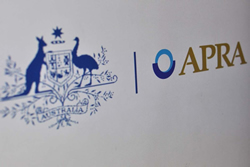David Bell* says the Australian Prudential Regulation Authority (APRA) is changing the way it gathers and uses data to make super funds more accountable.
 Margaret Cole recently presented APRA’s latest research on super fund business sustainability.
Margaret Cole recently presented APRA’s latest research on super fund business sustainability.
While most focused on the detail, the big picture is intriguing.
APRA is now collecting data, using this data to produce insightful research, and (aided by clever use of media) putting this back to industry to challenge trustees.
This is a significant development and shows the direction in which APRA is heading.
Data, research, and greater challenge
Data has long been a challenge for APRA, and for anyone reviewing the superannuation industry.
It is an industry where significant variation in approaches to performance calculation existed (e.g. technique and frequency).
There are no standardised approaches for sector definitions, exposure measurement (e.g. growth/defensive) and product labelling (e.g. balanced fund definition).
This was clearly called out by the Productivity Commission in their review of superannuation:
“In assessing the efficiency and competitiveness of the superannuation system, the Commission has frequently been (beyond) frustrated by the limitations of official data collections, and the quality of data provided to, and maintained by, APRA, ASIC and the ATO.”
But over recent years APRA’s data has been transforming, by both depth and breadth.
As the Superannuation Data Transformation project continues, APRA’s data sources will only expand.
The recent sustainability analysis demonstrates that the data won’t sit idly.
While the research hasn’t had to be overly complex to provide useful insight, the potential for more in-depth analysis increases with data and capability.
YFYS performance test and the RIC don’t fit this trend
The trends outlined above: APRA’s drive towards data, research, and challenge, don’t appear consistent with the YFYS performance test and the principles-based Retirement Income Covenant.
These should be viewed as two special situations.
It is important to differentiate between the role of policymaking and APRA’s role as prudential regulator.
The YFYS performance test was developed by Treasury and APRA is simply the administrator of the test.
Most observers would agree that APRA has used the test to strongly advocate for fund consolidation.
The Retirement Income Covenant is strongly principles-based.
With no clear pathway on many of the issues (objectives, products, delivery mechanisms, measuring outcomes) it is completely appropriate for APRA (and ASIC) to support the principles-based spirit, be realistic about the development timeframe, and highlight the need to fit in with existing frameworks such as Member Outcomes Assessment.
A consolidating industry will magnify APRA’s scope
Consolidation will increase the resources APRA applies to each fund.
Consider an industry which halves in size (measured by number of funds): all else equal, the teams tasked with assessing funds (both those on frontline engagement and those undertaking desktop analysis) can spend twice as much time assessing each fund.
This will provide APRA the bandwidth to prepare for the challenges ahead, such as retirement and ESG.
However, it will undoubtedly allow APRA to explore super funds in greater detail.
Feedback loops could become a prominent technique, whereby APRA communicates best practice, based on what they see amongst funds.
This raises industry standards.
APRA will also be able to communicate with those funds which are lagging what APRA considers to be baseline standards.
Over time, assessed insights could be incorporated into regulatory design, with strong candidate areas being retirement, member outcomes assessment, and ESG.
What are the take-outs for super funds?
Super funds should expect more of everything: more data collection, greater engagement, and goalposts which keep shifting upwards.
This situation isn’t unique to Australia.
In the CIO Sentiment Survey, one of the clearest trends was the significant focus by pensions funds globally on areas such as analytics tools and risk management technology.
There won’t be relief for funds which means the required mindset is one of striving for best practice rather than a compliance mindset.
Standards should exceed baseline expectations, and funds effectively contribute to an upwards spiral in quality.
One obvious outcome will be further consolidation as some funds find the required resources too great.
But the potential longer-term outcome is exciting.
An industry of funds with high baseline standards, striving for best practice, informed by a feedback loop process.
If this point of industry maturity and quality is reached, who knows what policy and regulatory flexibilities will be granted to the super industry to further improve outcomes for members.
*David Bell is the executive director of the Conexus Institute.
This article first appeared at investmentmagazine.com.au.











